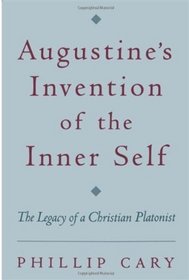Search -
Augustine's Invention of the Inner Self: The Legacy of a Christian Platonist
Augustine's Invention of the Inner Self The Legacy of a Christian Platonist
Author:
In this book, Phillip Cary argues that Augustine invented the concept of the self as a private inner space-a space into which one can enter and in which one can find God. Although it has often been suggested that Augustine in some way inaugurated the Western tradition of inwardness, this is the first study to pinpoint what was new about Augustin... more »
Author:
In this book, Phillip Cary argues that Augustine invented the concept of the self as a private inner space-a space into which one can enter and in which one can find God. Although it has often been suggested that Augustine in some way inaugurated the Western tradition of inwardness, this is the first study to pinpoint what was new about Augustin... more »
ISBN-13: 9780195158618
ISBN-10: 019515861X
Publication Date: 3/12/2003
Pages: 232
Rating: ?
ISBN-10: 019515861X
Publication Date: 3/12/2003
Pages: 232
Rating: ?
0 stars, based on 0 rating
Publisher: Oxford University Press
Book Type: Paperback
Other Versions: Hardcover
Members Wishing: 1
Reviews: Amazon | Write a Review
Book Type: Paperback
Other Versions: Hardcover
Members Wishing: 1
Reviews: Amazon | Write a Review
Genres:




